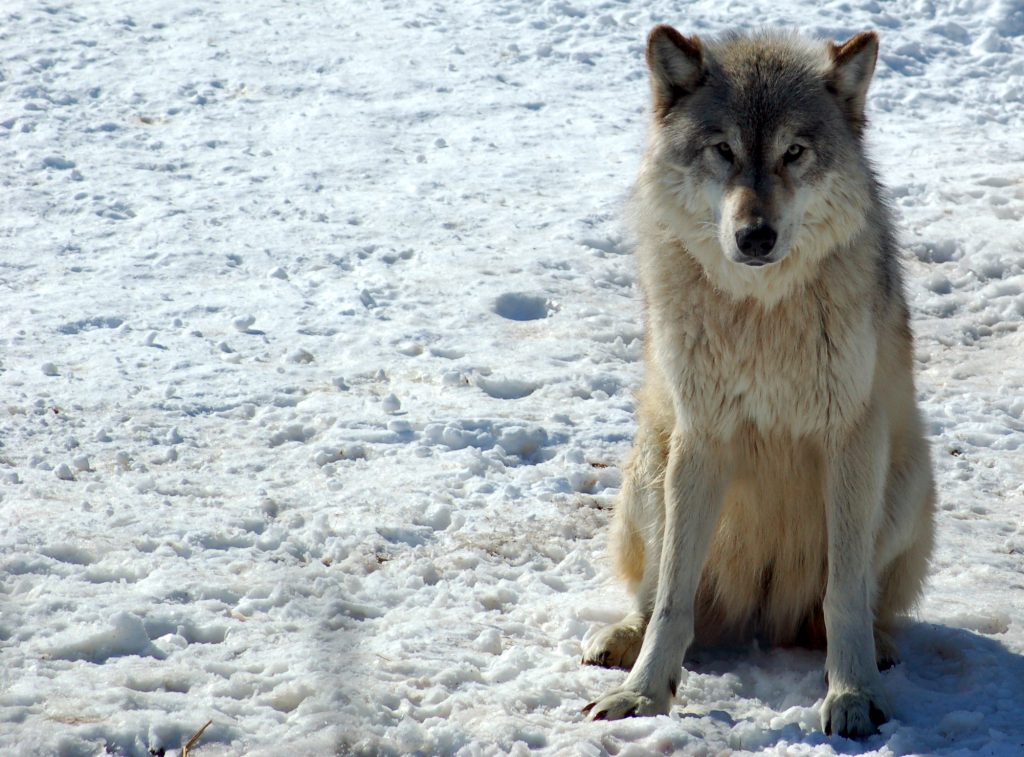DNR Sets 130-Wolf Quota for Fall Hunt
Department rejects 300-wolf quota set by the Natural Resources Board.
The Wisconsin Department of Natural Resources says it’s setting a quota of 130 wolves for the fall wolf hunt, rejecting a move by its own policy-setting board to more than double the amount of wolves that can be harvested.
In a news release, the DNR said state law authorizes the agency to make the final call on a quota for the hunt that’s set to begin Nov. 6. The move is the latest development in an apparent power struggle between the DNR under Gov. Tony Evers’ administration and the conservative majority on the Wisconsin Natural Resources Board who were appointed by former Republican Gov. Scott Walker.
A DNR spokesperson and NRB chair Fred Prehn did not immediately return requests for comment.
The move is almost certain to draw the ire of Walker-era NRB appointees and likely to prompt another legal challenge as the Nov. 6 hunt fast approaches.
In its announcement, the DNR said state-licensed hunters and trappers will be able to take 74 wolves while the remaining wolves will be awarded to Wisconsin’s Ojibwe tribes as part of federal treaty rights. The agency will sell five licenses for every wolf that can be harvested — less than half the number of licenses sold per wolf harvested in the February wolf hunt.
In February, state-licensed hunters killed 218 wolves, blowing past their 119 wolf quota in under 72 hours. The DNR had previously recommended a quota of 130 wolves due to uncertainty of the population’s response to the February wolf hunt. The NRB voted 5-2 in August to have a harvest quota of 300 wolves for this fall’s wolf hunt. Board member and Evers’ appointee Sharon Adams admitted later that she had never intended to approve that harvest target.
Hunters, farmers and some residents living among wolves have advocated for higher kills, pointing to increased conflicts with hounds and livestock as the wolf population has grown to more than 1,100 wolves statewide. Animal rights groups, conservation groups, researchers and tribes have blasted the NRB and the DNR for the state’s approach to wolf management and its handling of the February wolf hunt.
The Friends are among animal protection and wildlife advocacy groups who are suing to shut down the fall wolf hunt, calling a state law that mandates a hunt unconstitutional. Six Chippewa tribes have also filed a separate lawsuit seeking to halt the fall wolf season, saying their federal treaty rights have been violated. A hearing has been set in the tribes’ case for Oct. 29.
Wisconsin Attorney General Josh Kaul also brought a lawsuit against Prehn seeking to remove him from his seat, saying he’s defying the will of voters. The lawsuit stemmed from a complaint filed by animal rights groups over Prehn’s tenure on the board, which expired in May. Prehn has cited wolf management among reasons why he has decided to remain on the board.
The board’s chair has pointed to a Wisconsin Supreme Court ruling that allows him to remain in his seat until the Republican-controlled Senate confirms Evers’ appointee Sandy Naas. A judge has ruled in Prehn’s favor, but Kaul has vowed to appeal that decision.
Prehn, a Walker-era appointee, maintains the state should follow its existing wolf management plan in setting a quota for the fall wolf hunt. That plan sets a management goal of 350 wolves in Wisconsin.
Critics say that plan, which was first written in 1999 and last updated in 2007, is vastly outdated and not based on the best available science. The DNR has said the goal of 350 wolves was set as a trigger for management options — not a population goal.
The DNR originally planned to hold a single wolf hunt this fall, but Kansas-based Hunter Nation sued in February to force a wolf hunt. A Jefferson County judge ordered the DNR to immediately hold a hunt in February.
One study by University of Wisconsin-Madison researchers found hunters and poachers have killed a third of Wisconsin’s wolf population this year. Conservation groups like Wisconsin’s Green Fire fear the fall hunt could cut the state’s wolf population in half since earlier this year.
The DNR estimates Wisconsin had 1,136 wolves prior to the February hunt. The state’s population has grown from just 25 animals in 1980.
Editor’s note: This story will be updated.
Listen to the WPR report here.
DNR sets quota of 130 wolves for Wisconsin’s fall wolf hunt was originally published by Wisconsin Public Radio.






















